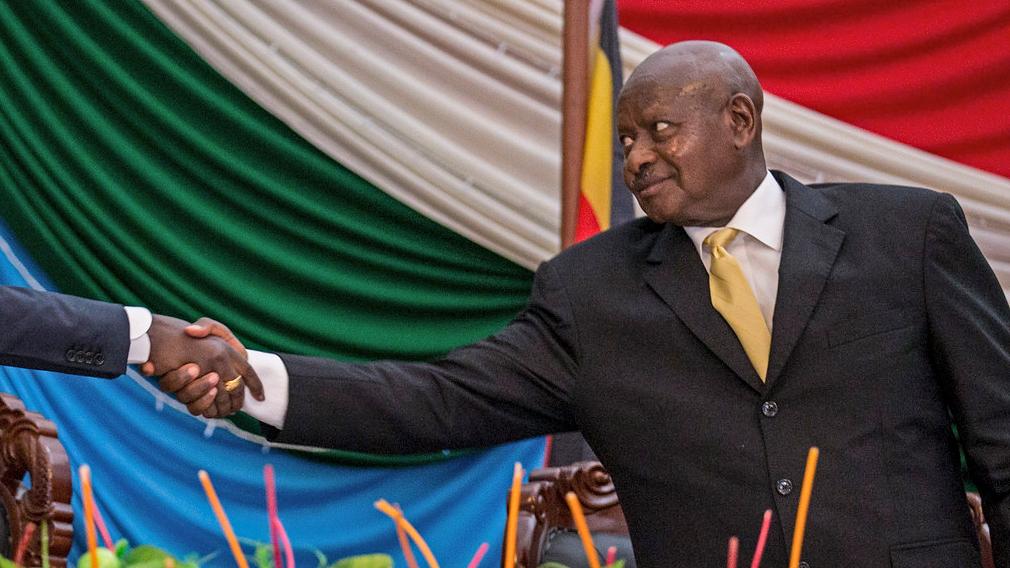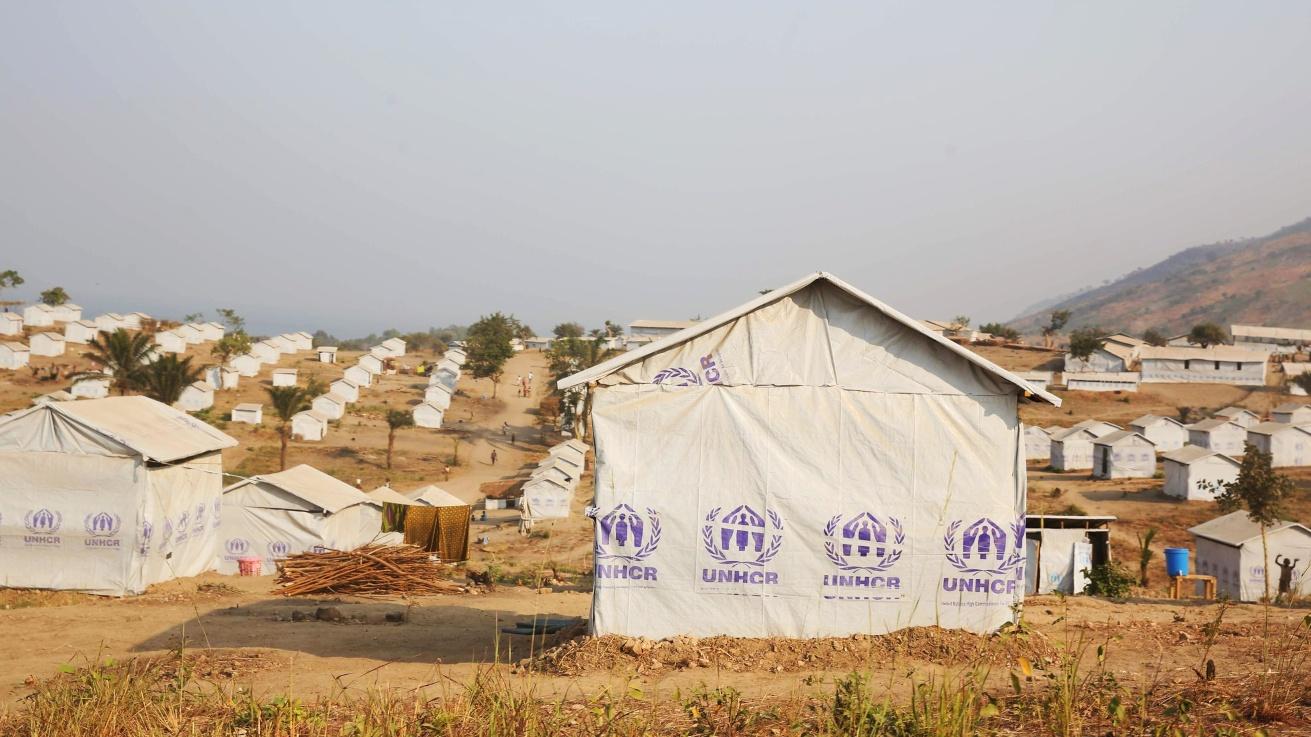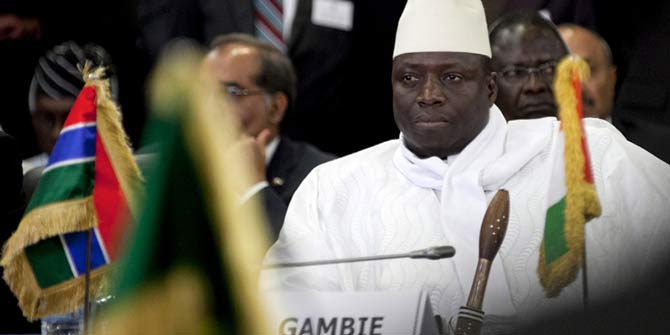Through prayer, civic education, summons, pastoral letters and the public blessing of politicians, religious leaders have been doing their best over the past few months to influence the Ugandan elections held on 18 February 2016. In the limelight, many of the nation’s most prominent religious leaders have campaigned for peaceful, free and fair elections, while others use their pulpits and radio stations to openly campaign for particular parties and candidates. In this post we explore the impact of their efforts.
“No political rally will ever gather the crowds you see gathered in Ugandan churches every Sunday morning.”
Although not really accurate, this statement, made to us by the Secretary General of the Uganda Joint Christian Council (UJCC) in an interview last week, reflects the basic reason why so many Ugandans, both religious leaders and their followers, believe religion to have a big impact on Ugandan society.
And indeed, they have reason to believe so. Uganda is one of the world’s most religious countries, at least by confession. Both the 2002 and 2015 Censuses indicate the non-religious to be below 1%. What religious leaders say thus has considerable clout. This was seen during the anti-gay legislation debate, and is being seen again during the Ugandan election.

Two weeks ahead of the elections, the Inter-Religious Council of Uganda, together with the Elders’ Council, arranged the country’s first ever public presidential debate on national TV. The incumbent president didn’t participate, but all the same, the debate was widely seen as an important and positive step towards democratisation. It is believed that the fact that it was organised by religious leaders contributed significantly in boosting the debate’s credibility in terms of lack of bias.
Over the past year, the UJCC has arranged training sessions for religious leaders across the country on the upcoming elections. According to the UJCC Secretary General, this is a natural thing for churches to do, because unlike other civil society actors, many of which side openly with the opposition, religious leaders are seen as nonpartisan.
On the basis of research we are currently conducting on the role of religious leaders in the Ugandan elections, we wish to put forward five preliminary observations.
1. Ugandan religious leaders see it as their role to educate believers on civic duties, and Ugandans expect and accept their religious leaders to play this role.
An overwhelming majority of the religious leaders we have interviewed so far have argued that religious leaders have not only the right, but the responsibility, to provide civic education to their followers. The key lessons arising from religious leaders’ teaching appear to be that people must vote, they must be alert and active citizens, and that they must remain calm and not engage in violence or creating chaos around the time of elections. People are also encouraged to vote for godly candidates, who will make political choices on the basis of biblical truths and high morals.
2. The position of religious leaders during the election period, and more generally in relation to politics, is inherently paradoxical.
To an important extent, religious leaders gain authority to comment on issues of a political nature from their perceived political neutrality. But the more they comment on issues of a political nature, the more likely they are to be branded partisan, and hence, to lose their authority to comment, especially among those who see them as lobbying for the wrong side. On the other hand, silence is also sometimes interpreted to mean betrayal or connivance with those in power.
The way in which religious institutions negotiate this paradoxical position is something our research seeks to look into in more depth in the following weeks. It appears that considerable differences in theological doctrine account for some of the variation in style and extent of political teaching in churches, but there is more at play. Other powerful actors, notable among them the state, play a crucial role in defining the limits of religious leaders’ political influence. Many religious leaders say they are lauded when they speak in ways that can be interpreted as positive towards the government, whereas criticism is often reproached on grounds of it not being the churches’ role to meddle in politics.
3. Ugandan religious leaders are a hugely diverse group, and they are also deeply divided among themselves, both between different religions and denominations, and within them.
Uganda’s political system was largely bifurcated between Anglicans in power and Catholics in opposition during the late colonial and early independence era. However, in the present political situation, significant party political and ethnic divisions cut through religious dominations. Although there are widespread impressions (also among religious leaders themselves) about the political standings of various churches, there is notable variation. The viewpoints of individual clerics depend on much more than their church affiliation, for instance, their economic ties, fears, historical indebtedness, doctrinal emphases, and their ethnicity, among others.
A particular observation to make in this regard concerns the political stand of Pentecostal-Charismatic churches. Partially due to the many prominent pastors openly lobbying for Museveni in Kampala, there is a widespread understanding in Uganda, and among scholars studying sub-Saharan Africa more generally, that born-again pastors tend to be pro-government. However, our research indicates that this is a gross simplification. We have met numerous Pentecostal pastors who are very critical of the sitting government, despite being grateful to Museveni for allowing freedom of worship to a degree not seen during previous Ugandan regimes. Many such pastors see it as their responsibility to educate their followers, and to act as ‘prophetic voices’ calling out injustice where they see it.
4. The proclamations of bodies like the Inter-Religious Council of Uganda and the Uganda Joint Christian Council tend towards political correctness and may in effect lend support to the incumbent regime’s proclaimed aim to protect the status quo – no change – in Uganda.
Considering the extreme violence of Uganda’s past, it is very understandable and commendable that Ugandan religious leaders are appealing so very strongly for peace. However, the message of peace, particularly when combined with arguments by many clergy that all authority is from God, and that the announced election result must thus be respected, can also have a repressing impact on opposition attempts to challenge Museveni’s regime.
Some religious leaders have opted out of the apparent political correctness of joint statements lobbying for peace. Among them, for instance, is the former Anglican bishop Zac Niringiye, who put himself at the forefront of opposition activism against corruption together with CSOs such as USAID after the last elections. As an outcome of his choice, Niringyie was advised to dismiss himself from the Uganda Joint Christian Council. It thus appears there is a sense of collective self-censorship of political critique of the ruling government among religious leaders.
There are a number of reasons for such self-censorship and silence on government abuses by clergy. First of all, many religious leaders acknowledge that in order for them to remain influential in society, and in order for them to retain followers, they must appear neutral. There is also an element of tactical silence, whereby some religious leaders argue that positive relations with the political establishment enable them to lobby for reforms behind the scenes, quietly but effectively. Many religious leaders also support the NRM government, arguing particularly that it has brought peace, or that it has promoted freedom of worship. Adopting a pro-government stance may also have considerable financial benefits, and count for a lot particularly for those religious leaders who do not have access to considerable external resources.
5. Under all the talk of civil rights and democracy, the elections are widely seen in spiritual terms. The elections are a time affected strongly by good and evil spirits, God and Satan, and attempts are made to employ rituals and prayer to manipulate these on behalf of desired outcomes on the political plain.
In a country as deeply religious as Uganda, the time of elections is seen in very spiritual terms. Pentecostal and Anglican pastors in particular turn discussions on the vote very quickly to spiritual matters, describing this time of the vote as a time of intense spiritual warfare. Rumours of politicians going underwater, of committing sacrifices, and of visiting traditional healers and diviners in order to gain power, are a powerful currency in political debate.
While in some situations turning to prayer or spiritual warfare can have an empowering political effect, in others it appears that evocation of spiritual explanations for politics may lend a hand to the government’s attempts to retain the status quo. On the evening of the elections, a Pentecostal pastor for instance encouraged one of the authors to turn to the Bible to understand what was going on:
“If God has that plan, there is nothing we can do: it shall come to pass. Like Matthew 24:1 says, we should not be overwhelmed when in some parts of the world, there will be rumours of war. It is a sign, we can be assured: we are in the end times. It confirms that Christ’s coming is eminent. So we can only pray for ourselves and our brothers, that the spirits do not overwhelm us.”
Fighting the devil – fighting for democracy?
What then is the overall impact of religious leaders on the elections? Amidst the haze of the fieldwork we are conducting in the middle of the very unsettling election process, we find it too early to say.
What we see, however, is that there is a significant attempt undertaken by religious leaders to sway the political future of Uganda. Whether their many prayers for peace are heeded by the Ugandan electorate, the politicians, the army, or God; or whether things will turn rough, will be seen over the next few days and weeks.
This piece was first published on the Justice and Security Research Programme (JSRP) blog.
Henni Alava is a PhD Candidate for the University of Helsinki, who is working is currently in Uganda doing research as a consultant for the Justice and Security Research Project of the London School of Economics.
Jimmy Spire Ssentongo is a lecturer at Uganda Martyr’s University, who holds a PhD from the University of Humanistic Studies in Utrecht.
The views expressed in this post are those of the authors and in no way reflect those of the Africa at LSE blog or the London School of Economics and Political Science.






Religion will always be used as an excuse to human actions, be it bombing, corruption among other evil things. Of course, there’s often an infinite chance to repent unless cut short by death. Scandinavian countries that rely on science, for instance,are however doing much better. Look at what Islam is doing in the middle East, Christianity in Africa..its such a shame that at this age we are still clinging to superstitions.